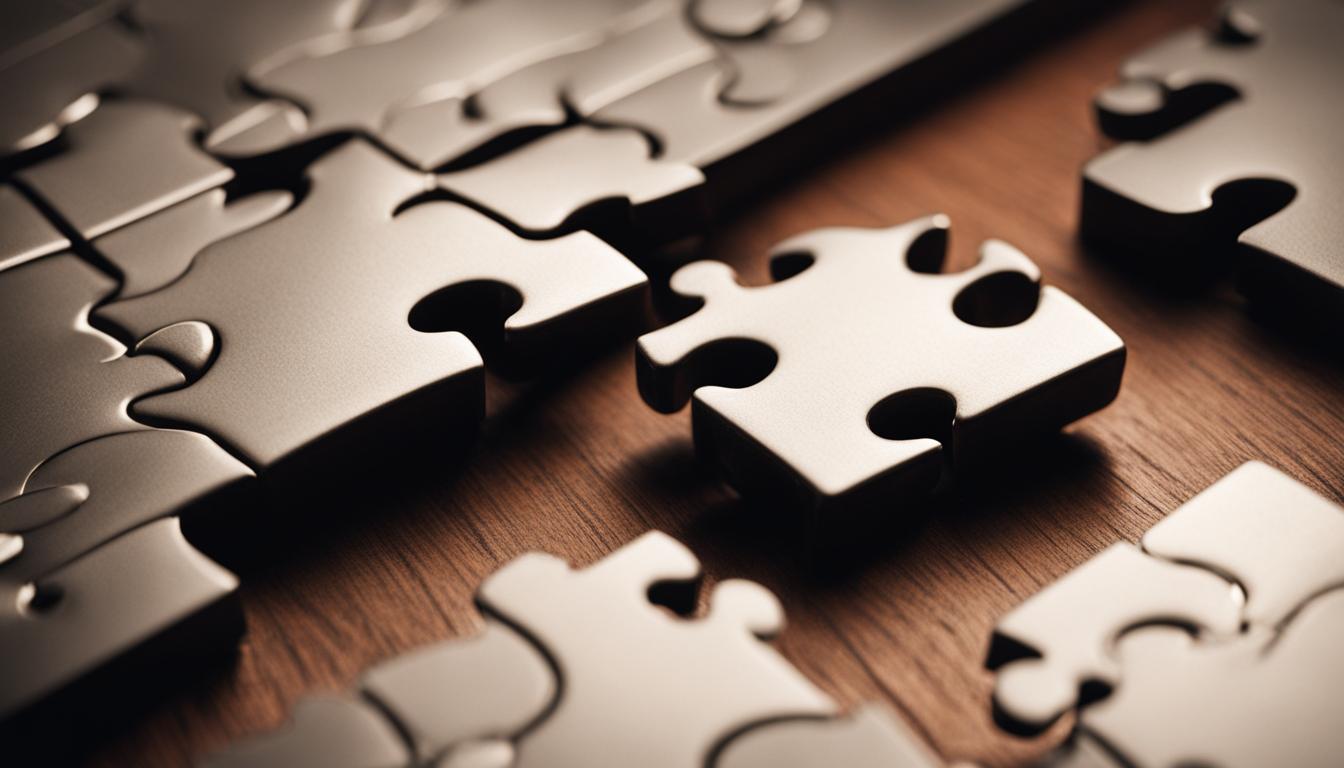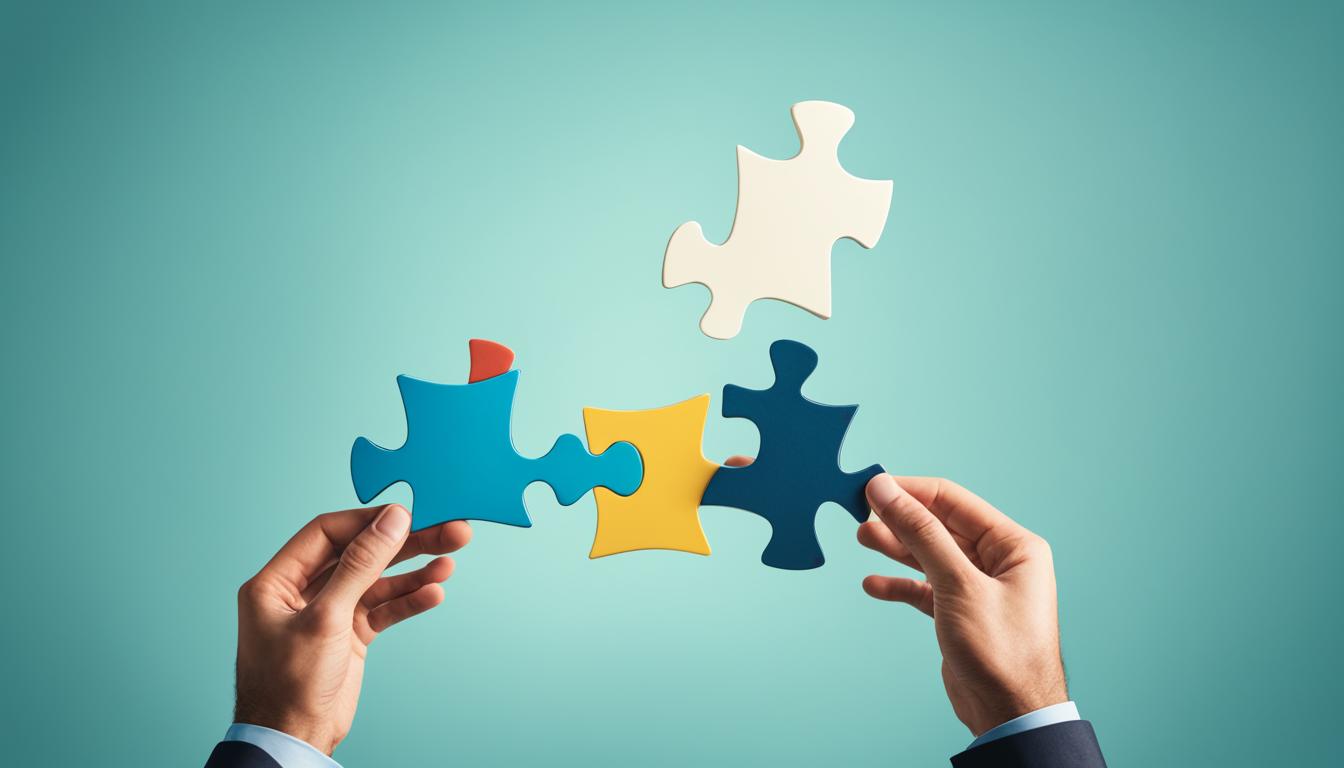Transitioning from friends to lovers can be both exhilarating and nerve-wracking. Assessing your own feelings and gauging mutual interest are important steps in navigating this shift. Open communication, taking things slow, and building emotional intimacy are key to successfully transitioning from friends to lovers. It’s also essential to explore romantic compatibility and be prepared to navigate potential challenges along the way. Ultimately, maintaining the friendship should be a priority, regardless of the outcome.
Key Takeaways:
- Assess your own feelings before pursuing a romantic relationship with a friend.
- Gauge mutual interest through observation and direct communication.
- Open and honest communication is crucial for navigating the transition.
- Take things slow to allow for a gradual increase in romantic involvement.
- Build emotional intimacy by sharing thoughts, vulnerabilities, and engaging in meaningful activities.
Assessing Your Feelings
Before embarking on the journey from friends to lovers, assessing your own feelings is crucial. Take the time to reflect on your emotions and understand the nature of your attraction towards your friend. Are your feelings driven by genuine romantic interest, or are they simply a result of temporary infatuation?
Honesty plays a significant role in this self-reflection process. Being honest with yourself about your true feelings is the first step towards making an informed decision about whether or not to pursue a romantic relationship with your friend.
Remember, romantic interest goes beyond temporary infatuation. It involves a deeper connection and desire for a long-lasting relationship. Taking the time to genuinely assess your feelings will help you discern whether the attraction is rooted in a genuine romantic interest or a fleeting infatuation.
Gauging Mutual Interest
Once you’ve examined your own feelings, it’s essential to gauge whether your friend shares the same romantic potential. Look for signs of reciprocal interest, such as prolonged eye contact, physical touch, or deeper conversations that go beyond typical platonic boundaries. These signs can indicate a mutual interest in exploring a romantic connection.
However, it’s important to remember that interpreting these signs can be subjective. What may seem like a sign of mutual interest to you may not be interpreted the same way by your friend. Therefore, direct communication is crucial in order to avoid misunderstandings and ensure clear understanding of each other’s feelings and intentions.

Open Communication
Honest and open communication is the foundation for successfully navigating the transition from friends to lovers. It’s essential to express your feelings and intentions to your friend in a clear and respectful manner. By openly communicating your emotions, you create a safe space for both of you to share your thoughts and desires.
Choose an appropriate time and place to have an open conversation. This will ensure that you both have the necessary privacy and comfort to express yourselves without any distractions. Remember, effective communication requires active listening and understanding.
When discussing your feelings, be honest and transparent. Express yourself in a way that allows your friend to understand the depth and sincerity of your emotions. Use clear and direct language to avoid any misunderstandings or confusion.
Respect is key throughout this process. Value your friend’s perspective and listen to their thoughts and concerns. By demonstrating respect, you create a safe and non-judgmental environment that encourages open dialogue. Be patient and allow your friend time to process their own emotions and thoughts before responding.
Expressing Your Feelings
“I’ve been reflecting on our friendship lately, and I wanted to be open with you about my feelings. I’ve developed romantic feelings for you, and I felt it was important to share that with you. I value our friendship and wanted to express my desire to explore the possibility of a romantic relationship.”
By expressing your feelings in a clear and respectful manner, you open the door to open communication and pave the way for an honest discussion about your future together.
Taking It Slow
Moving from friendship to romance should be approached with caution. Taking things slow allows both individuals to adjust and adapt to the changing dynamics. Rushing into a romantic relationship can put unnecessary strain on the friendship.
Remember, Rome wasn’t built in a day, and neither should your romantic connection. By gradually increasing romantic gestures and spending quality time together, you give the bond the chance to naturally develop. Embrace the beauty of slow and steady progress, allowing your friendship to evolve organically.
Just like a delicate flower, a relationship needs time to bloom. By taking it slow, you allow each other the space and opportunity to process and adjust to the new dynamic. This approach sets a strong foundation for long-lasting love.
So, cherish each moment, make meaningful memories, and enjoy the journey of discovery. Love and friendship are intertwined, and by taking it slow, you’re giving your relationship the chance to grow in a beautiful and authentic way.
“Love is like a butterfly: if you chase it, it will fly away. But if you let it come to you, it will land gently on your shoulder.”
Building Emotional Intimacy
As you navigate the transition from friends to lovers, building emotional intimacy with your friend-turned-potential-partner is essential. This deepens your connection and lays the foundation for a strong romantic relationship.
Take the time to share your thoughts, dreams, and vulnerabilities with each other. By opening up and expressing your innermost thoughts, you create a safe space for emotional bonding and understanding.
To foster this deeper connection, engage in activities that promote emotional intimacy. Plan meaningful dates that allow you to explore shared interests or create new memories together. Spending quality time in an intimate setting can foster a sense of closeness and emotional connection.
Meaningful Conversations
In addition to shared experiences, take the opportunity to have heartfelt conversations where you both can express your thoughts, desires, and fears openly. These conversations help you understand each other on a deeper level and build trust and intimacy.
“Sharing vulnerability is an act of trust and creates a space for emotional intimacy to thrive.”
Remember, building emotional intimacy is an ongoing process. It requires consistent effort and a willingness to be vulnerable with each other. By investing in this aspect of your relationship, you develop a stronger bond that can withstand the tests of time.
Exploring Romantic Compatibility
While a strong friendship forms an excellent basis, it’s important to go beyond the dynamics of friendship and explore romantic compatibility. Assessing shared values, long-term goals, and visions for the future is essential in determining whether your relationship has the potential to thrive romantically. By discussing expectations and ensuring compatibility on a romantic level, you can lay a solid foundation for a successful and fulfilling relationship.

When exploring romantic compatibility, it’s crucial to consider how closely your values align with your partner’s. Shared values provide a sense of unity and understanding, creating a strong bond that can withstand the tests of time. Reflect on your core beliefs and priorities, and have open discussions to gauge if your values are in harmony.
Additionally, consider your long-term goals and aspirations. Do you have compatible visions for the future? Are your ambitions complementary or conflicting? Discussing your individual goals and how they fit together can give you a clearer picture of whether your relationship is built for the long haul.
Remember, while friendship is an important foundation, a successful romantic relationship requires compatibility in various aspects of life. Take the time to explore and understand your romantic compatibility to ensure a harmonious and fulfilling partnership.
Navigating Potential Challenges
Transitioning from friends to lovers can bring about a set of potential challenges. As you embark on this journey with your friend-turned-potential-partner, it’s important to be prepared for these hurdles and face them head-on. By addressing these challenges together, you have the opportunity to strengthen your bond and create a solid foundation for your new romantic relationship.
Managing Jealousy
One of the potential challenges that may arise during the transition from friends to lovers is managing jealousy. As your relationship evolves and becomes more intimate, you may find yourself feeling jealous or insecure at times. It’s essential to communicate openly and honestly about these emotions with your partner.
Recognize that jealousy is a natural human emotion, but it’s how you handle it that matters. Trust and transparency are key in overcoming jealousy. Reassure each other of your commitment and work together to build a secure and trusting relationship.

Adapting to New Dynamics
Another challenge you may encounter is adapting to the new dynamics of your relationship. As friends, you were accustomed to a certain level of familiarity and comfort. However, as lovers, there are new expectations, boundaries, and responsibilities to navigate.
Take the time to discuss and establish clear boundaries, desires, and expectations with your partner. Be open to compromise and flexibility as you both adjust to these new dynamics. It’s important to approach this transition with patience, understanding, and a willingness to adapt.
Remember, this is a learning process for both of you. Embrace the opportunity to grow together and create a harmonious balance between your friendship and romantic relationship.
Handling Rejection
Not every attempt to transition from friends to lovers will be successful, and that’s okay. It’s essential to be prepared for the possibility of handling rejection and handle it gracefully. If your friend doesn’t reciprocate your romantic feelings, respect their decision and give them space. It’s important to prioritize the preservation of the friendship, even if it means accepting that a romantic relationship may not be in the cards.

Maintaining the Friendship
Regardless of the outcome, maintaining the friendship should be a priority. If the transition to a romantic relationship doesn’t work out, it’s important to communicate openly and honestly about your feelings. Give each other time and space to process the situation, and once the dust settles, make an effort to rebuild the friendship. Remember the value of the connection you had as friends and work towards preserving it.
Open communication is key in this process. Be transparent with each other about your emotions, concerns, and expectations. Sharing your thoughts and feelings in a respectful and understanding manner can help foster trust and reinforce the bond you had as friends.
“Open communication is the foundation of any strong relationship. Even if the romantic aspect didn’t work out, rebuilding the friendship requires honest conversations and a willingness to listen to each other.”
Rebuilding the friendship might take time and effort, but it’s worth it. Find activities or shared interests that you both enjoy and create new memories together. Plan outings, have movie nights, or simply spend quality time catching up. Reconnecting on a platonic level can help heal any lingering discomfort and strengthen your friendship.

Seeking Outside Support
Navigating the transition from friends to lovers can be a complex journey filled with uncertainties. During this time, seeking outside support can provide invaluable guidance and perspective. Don’t hesitate to reach out to trusted friends who can offer a listening ear and be a source of comfort. Sometimes, discussing your thoughts and feelings with others can help you gain clarity and see your situation from a different angle.
If you feel the need for professional guidance, consider seeking the help of a relationship counselor or therapist. These trained professionals can provide insights into navigating the challenges that may arise during this transition. Their expertise can help you better understand your emotions and enhance your communication skills, enabling you and your friend-turned-potential-partner to build a strong foundation for your new romantic relationship.
Remember, having an impartial third party, whether it’s a trusted friend or a professional, can offer fresh perspectives and support you in making informed decisions. Don’t be afraid to seek assistance when needed.

Trusted Friends: A Source of Encouragement
“Having a network of trusted friends can be immensely beneficial during this transitional phase. They can provide encouragement, empathy, and advice based on their own experiences. Lean on them for support as you navigate the uncharted territory of turning a friendship into a romantic relationship.” – Joe Thompson, Relationship Expert
Empowering Conversations with Professionals
“Relationship counselors and therapists are trained in helping individuals manage the intricacies of romantic relationships. They can provide a neutral space for open and honest conversations, helping you and your friend explore your feelings, set boundaries, and develop effective strategies for a successful transition from friends to partners.” – Dr. Samantha Miller, Licensed Therapist
Embracing the Journey
Above all, remember to embrace the journey of transitioning from friends to lovers. This process is filled with excitement and uncertainty as you explore new romantic territory. Allow yourself to be vulnerable and open to the possibilities that lie ahead. It’s natural to have expectations, but even if the outcome doesn’t align with your initial hopes, cherish the growth and self-discovery that accompanies the journey.

Embracing the journey means stepping outside of your comfort zone and embracing the unknown. It means being willing to take risks and allowing yourself to experience the magic that can come from vulnerability and self-discovery.
Transitioning from friends to lovers is an opportunity for personal growth and exploration. It’s a chance to learn more about yourself, your desires, and what you truly value in a romantic relationship. Embracing this journey allows you to deepen your understanding of your own emotions, needs, and boundaries.
Throughout the process, it’s important to stay open-minded and adaptable. Embrace the twists and turns, and embrace any lessons that come your way. Remember, the journey is not solely about the destination, but about the experiences and personal development that occur along the way.
By embracing the journey, you demonstrate courage and resilience. You give yourself permission to lean into vulnerability and explore the depths of your connection with your friend. So, let go of expectations and surrender to the beautiful uncertainty of the journey.
Conclusion
Transitioning from friends to lovers can be a transformative and exhilarating experience. It allows you to explore a deeper connection with someone you already share a strong bond with. However, it’s important to remember that maintaining the friendship should always be a priority, even if the romantic relationship doesn’t flourish.
Throughout this journey, it’s crucial to seek support when needed. Don’t hesitate to reach out to trusted friends or consider seeking guidance from a relationship counselor or therapist. They can provide valuable insights and help you navigate the challenges that may arise.
By building a strong relationship on the foundation of friendship and navigating the challenges together, you can create a bond that goes beyond what you ever imagined. Embrace the journey, cherish the growth, and embrace the vulnerability that comes with transitioning from friends to lovers. Regardless of the outcome, this experience will lead to self-discovery and personal growth. So take the leap, and who knows, your friendship may blossom into a beautiful romance.
FAQ
How do I assess my own feelings when transitioning from friends to lovers?
Take the time to reflect on your emotions and understand the nature of your attraction towards your friend. Ask yourself if your feelings stem from genuine romantic interest or if they are merely a result of temporary infatuation.
What signs can indicate mutual interest when transitioning from friends to lovers?
Look for signs of reciprocal interest, such as prolonged eye contact, physical touch, or deeper conversations that go beyond typical platonic boundaries. However, direct communication is crucial to avoid misunderstandings.
How important is open communication in transitioning from friends to lovers?
Honest and open communication is the foundation for successfully navigating the transition. It’s essential to express your feelings and intentions to your friend in a clear and respectful manner. Effective communication is key to building a solid romantic relationship.
Why is it important to take things slow when transitioning from friends to lovers?
Taking things slow allows both individuals to adjust and adapt to the changing dynamics. Rushing into a romantic relationship can put unnecessary strain on the friendship. Gradually increasing romantic gestures and allowing the bond to naturally develop is key.
How can I build emotional intimacy when transitioning from friends to lovers?
Share your thoughts, dreams, and vulnerabilities with your friend-turned-potential-partner to foster a deeper connection. Engage in activities that promote emotional bonding, such as going on meaningful dates, exploring shared interests, or having heartfelt conversations.
What should I consider when exploring romantic compatibility?
Assess shared values, long-term goals, and visions for the future. Discuss your expectations and ensure that you are compatible on a romantic level. While friendship is important, a successful romantic relationship requires compatibility in various aspects of life.
How can I navigate potential challenges when transitioning from friends to lovers?
Be prepared to manage challenges such as jealousy, past unresolved issues, or adapting to new relationship dynamics. It’s crucial to address these challenges head-on, communicate openly, and find mutually beneficial solutions.
How should I handle rejection when transitioning from friends to lovers?
If your friend doesn’t reciprocate your romantic feelings, respect their decision and give them space. It’s important to prioritize the preservation of the friendship, even if it means accepting that a romantic relationship may not be in the cards.
How do I maintain the friendship if the transition to a romantic relationship doesn’t work out?
Communicate openly and honestly about your feelings, give each other time and space to process the situation, and make an effort to rebuild the friendship once the dust settles. Remember the value of the connection you had as friends and work towards preserving it.
Should I seek outside support when transitioning from friends to lovers?
Seeking outside support, such as trusted friends or relationship counselors or therapists, can be immensely beneficial. An impartial third party can provide valuable insights and help navigate any challenges that arise.
How can I embrace the journey of transitioning from friends to lovers?
Enjoy the excitement and uncertainty that comes with exploring new romantic territory. Allow yourself to be vulnerable and open to the possibilities that lie ahead. Even if the outcome doesn’t align with your initial expectations, cherish the growth and self-discovery that accompanies the journey.
Source Links
- https://www.brides.com/how-to-go-from-friends-to-dating-5105333
- https://themendingmuse.com/relationships/when-best-friends-become-lovers/
- https://www.minimalismmadesimple.com/home/friends-to-lovers/


